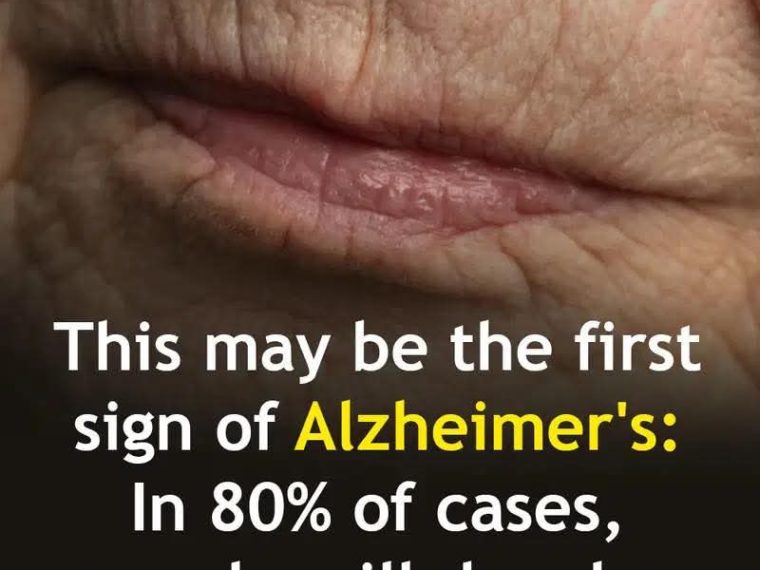Alzheimer’s, a neurodegenerative disease that affects millions of people worldwide, is known for its devastating impact on memory and cognitive function. However, identifying its early signs can be key to early diagnosis and better management. Recent research has highlighted that an early symptom, mild memory loss associated with difficulty recalling recent events, can be a critical indicator.
According to studies, up to 80% of people who experience this symptom, known as mild cognitive impairment (MCI), will develop Alzheimer’s in the following years. This article explores this early sign, its meaning, and how to take action to protect brain health, with a clear, professional, and accessible approach.
What is Alzheimer’s and why is it important to detect it early?
Alzheimer’s is a progressive disease that affects brain cells, causing memory loss, thinking difficulties, and behavioral changes. According to the Alzheimer’s Association (2025), more than 55 million people are living with dementia worldwide, with Alzheimer’s accounting for up to 70% of cases. Although there is no cure, early detection allows access to treatments that slow its progression, improve quality of life, and plan for the future.
Dr. Maria Carrillo, scientific director of the Alzheimer’s Association, explains: “Identifying early signs, such as mild cognitive impairment, is crucial because it gives us a window to intervene before brain damage becomes extensive.” The transition from mild symptoms to Alzheimer’s can take years, underscoring the importance of acting at the first signs.
The First Sign: Mild Cognitive Impairment (MCI)
Mild cognitive impairment is an intermediate state between normal aging and dementia. It is characterized by memory or thinking problems that are more noticeable than typical age-related changes, but not severe enough to significantly interfere with daily life.
According to a study published in Neurology (2024), 80% of people with amnestic MCI (which primarily affects memory) will develop Alzheimer’s within 5 to 10 years.
How does MCI manifest?
The most common signs of Alzheimer’s-related MCI include:
Difficulty remembering recent events: For example, forgetting a doctor’s appointment or what you ate for breakfast, but remembering events from decades ago.
Repeating questions or stories: Asking the same thing multiple times in a conversation without realizing it.
Word-finding problems: Difficulty remembering common terms or substituting incorrect words.
Mild disorientation: Getting lost in familiar places or forgetting the current date.
Difficulty with complex tasks: Trouble planning a meal, managing finances, or following detailed instructions.
Practical example: A 68-year-old woman notices that she frequently forgets where she parked her car or repeats the same story to her children. Although she can still manage her daily routine, these episodes are more frequent than before, which could indicate MCI.
Why do 80% of people with MCI develop Alzheimer’s?
Amnestic MCI is closely linked to Alzheimer’s disease because it reflects early damage to brain areas such as the hippocampus, which is crucial for memory. Brain imaging studies, such as those published in The Lancet Neurology (2024), show that people with MCI often have beta-amyloid plaques and tau tangles, pathological hallmarks of Alzheimer’s disease, even before symptoms become severe.
The risk of progression to Alzheimer’s disease depends on several factors:
Age: People over 65 with MCI are more likely to develop the disease.
Genetics: The presence of the APOE4 gene increases the risk by up to 30%, according to the Journal of Alzheimer’s Disease (2024).
Other risk factors: High blood pressure, diabetes, depression, or previous head trauma accelerate progression.
MCI severity: Those with more pronounced memory problems are at higher risk.
For example, a 70-year-old man with MCI who has the APOE4 gene and uncontrolled diabetes has a significantly higher chance of developing Alzheimer’s than someone without these factors.
Other early signs to watch out for
See Continuation On Next Page 👇





